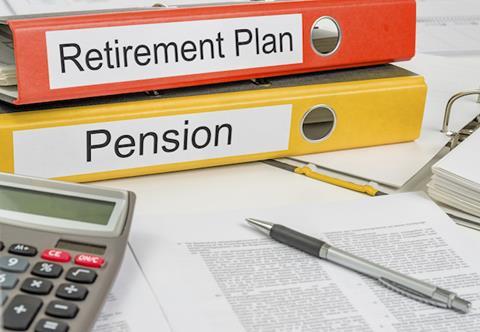
The Finance Bill received Royal Assent on 27 April, becoming the Finance Act 2017. However, the final act omitted a number of clauses in a bid to expedite its passage through Parliament ahead of the snap general election on 8 June.
In the final reading of the Finance Bill in the House of Commons on 25 April 2017, Jane Ellison, financial secretary to the Treasury, stated that there had been no change in policy in relation to the omitted clauses, and that these would be legislated for at the earliest opportunity at the start of the new Parliament.
For pension and benefits professionals, the noteworthy omissions include the reduction of the money purchase annual allowance (MPAA) and the increase of the tax-exempt employer-arranged pensions advice allowance from £150 to £500.
The money purchase annual allowance
The change to the MPAA, which was first announced by Chancellor Philip Hammond in the 2016 Autumn Statement, would restrict the tax-relieved amount that those who have accessed their pension through the April 2015 flexibilities can contribute to their defined contribution (DC) pension from £10,000 to £4,000.
The measure aimed to provide scope for individuals who need to access their pension savings to subsequently rebuild them, while limiting the extent to which pension savings can be recycled to take advantage of tax relief, which the government considered to be outside of the spirit of the pensions tax system. The somewhat controversial measure has been viewed by some to contradict the principles upon which the pension freedoms are based.
The government ran a consultation on the MPAA reduction between 23 November 2016 and 15 February 2017. In its response to the consultation, published in March 2017, the government confirmed that the reduction would proceed as proposed, and no transitional arrangements would be put in place. The reduced MPAA would apply to any savers that have accessed their pensions flexibly or that will do so in the future, no matter when the decision to access their pensions occurred.
The reduction from £10,000 to £4,000 was due to take effect from 6 April 2017, as legislated for through the Finance Bill 2017.
Tim Middleton, technical consultant at the Pensions Management Institute (PMI), said: “We shouldn’t interpret [the omission of the MPAA clause] as meaning it’s been withdrawn absolutely, it’s just not been implemented according to the original timescale.”
For the time being, employers may wish to err on the side of caution and work on the assumption that the reduction will take effect from the 2017-18 tax year, said Karen Goldschmidt, partner at Lane Clark and Peacock (LCP). “With that political statement [from the financial secretary], what employers can validly assume is that if the current party stays in power, unless and until we hear otherwise, the reduction to £4,000 is in place,” she explained.
However, even if the Conservatives win another term in Parliament and push ahead with the omitted provisions as planned, some questions remain. John Wilson, head of technical at JLT Employee Benefits, said: “What we’re not clear on is whether these policies will be revisited and re-implemented from the beginning of this tax year, whether it would be from a current date after the election or whether it would be from a future date such as the beginning of the 2018-2019 tax year. […] At the moment, all [employers] can do is watch this space and continue to take advice from their pension adviser.”
Tax-exempt employer-arranged advice
The tax-exemption for the first £500 worth of pensions advice provided to an employee in a tax year was also due to come into effect from 6 April 2017. This measure, which was announced by former Chancellor George Osborne in the March 2016 Budget, was due to replace the £150 cap on tax-free employer-arranged pensions advice. The change would also have widened the scope of the advice to include general financial and tax issues relating to pensions.
The employer-arranged advice allowance is distinct from the tax-advantaged pensions advice allowance, which enables individuals to withdraw £500 from a DC pension scheme to pay for pensions or retirement advice. This allowance, which was introduced in April 2017, can be used once per tax year and up to three times over the course of a lifetime. In February 2017, the government confirmed that the pensions advice allowance could be used in conjunction with the tax-exempt employer-arranged advice.
JLT’s Wilson said: “What’s frustrating about [the delay] is that a lot of advisers, like ourselves, were making the point that if you combined the member pensions advice allowance with the £500 for advice in the workplace, then together you were able to provide individuals with £1,000-worth of advice, which might have been something a bit more meaningful in terms of retirement planning, guidance or advice, but that’s now not possible.”
For the moment, employers are best placed to assume that the threshold for tax-free employer-arranged advice remains at £150, said Wilson. By proceeding on this basis, organisations can mitigate risk relating to the tax exemption until legislation has been passed, added Goldschmidt.
It remains to be seen whether the MPAA or tax-advantaged advice limit provisions will proceed in their current form, although, depending on the result, some clarity may be provided following the outcome of next month’s general election.











